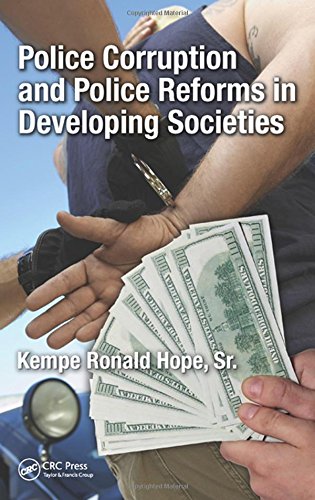

Most ebook files are in PDF format, so you can easily read them using various software such as Foxit Reader or directly on the Google Chrome browser.
Some ebook files are released by publishers in other formats such as .awz, .mobi, .epub, .fb2, etc. You may need to install specific software to read these formats on mobile/PC, such as Calibre.
Please read the tutorial at this link: https://ebookbell.com/faq
We offer FREE conversion to the popular formats you request; however, this may take some time. Therefore, right after payment, please email us, and we will try to provide the service as quickly as possible.
For some exceptional file formats or broken links (if any), please refrain from opening any disputes. Instead, email us first, and we will try to assist within a maximum of 6 hours.
EbookBell Team

4.8
34 reviewsMuch of the literature on police corruption and police reforms is dominated by case studies of societies classified as developed. However, under the influence of globalization, developing societies have become a focal point of scholarly interest and examination. Police Corruption and Police Reforms in Developing Societies provides critical analyses of the extent and nature of police corruption and misconduct in developing societies. It also examines police reform measures that have been implemented or are still necessary to control and mitigate the effects of police corruption in developing societies.
This book offers a comprehensive and authoritative account of the causes and consequences of police corruption. It also relates lessons learned from police reform efforts that have been made in a wide cross section of developing societies spanning several continents.
The book is divided into five sections covering:
Police Corruption and Police Reforms in Developing Societies is a significant contribution to shifting attention from the dominance of developed societies in the literature on police corruption and police reforms. It also bridges the gap between research and practice, with an editor and contributors who bring a wealth of practical experience to their analyses. Their combined efforts in this book provide new insights on the problem of police corruption in developing societies as well as approaches and challenges to police reforms.